By Amelia Middleton
An informal survey of 62 Mississippi State University students suggests Netflix’s crackdown on password sharing could hurt their customer base in Starkville.
Netflix, one of the world’s most prominent streaming services, recently leaked plans to crack down on password sharing but later clarified that the restrictions aren’t coming to the United States, at least for now.
A Google Forms survey sent through different forms of social media such as Groupme and Instagram received 62 responses. The survey was sent to class group chats, sorority group chats and to random college students through Instagram polls. Each question was created in order to determine how the possible changes would specifically affect Mississippi State University students.
According to an article published by The Guardian, Netflix said account sharing undermines their ability to properly run and improve the service. 93% of students said they would not purchase their own account to avoid the restrictions, and 91% said the location guidelines would negatively affect their viewing experience.
Based on the survey, 100% of students use Netflix as a streaming service. Most of the respondents said they did not use their own accounts, and would not subscribe if Netflix implemented the proposed changes. The graphs below provide a closer look at the survey results.
Survey Results
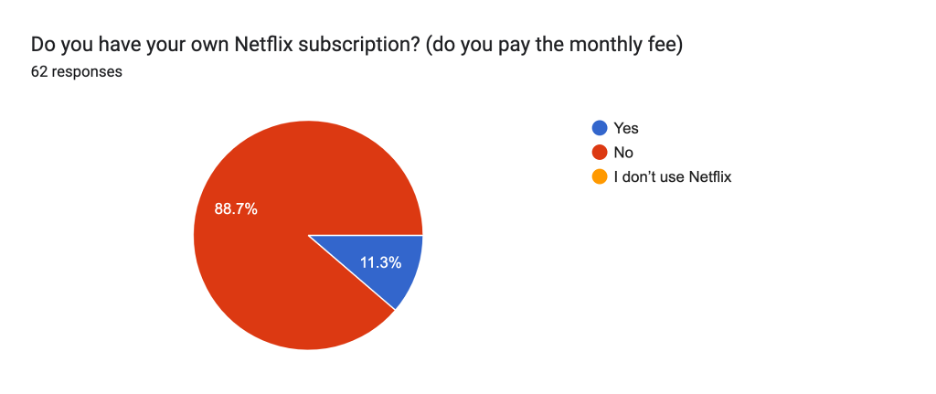
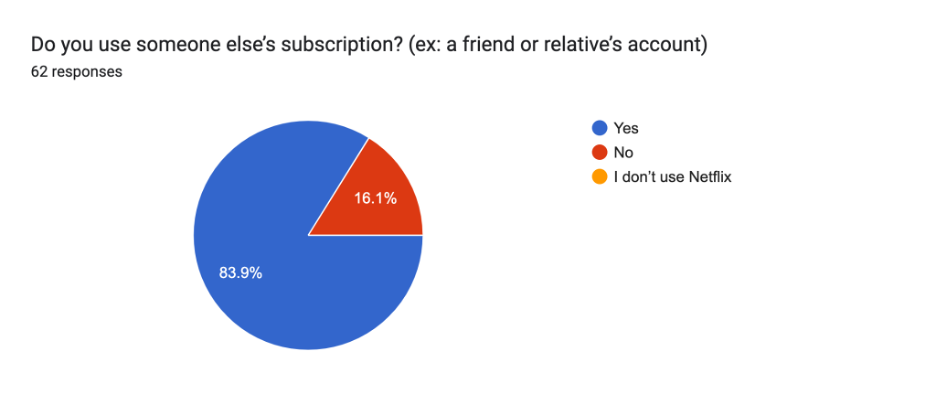
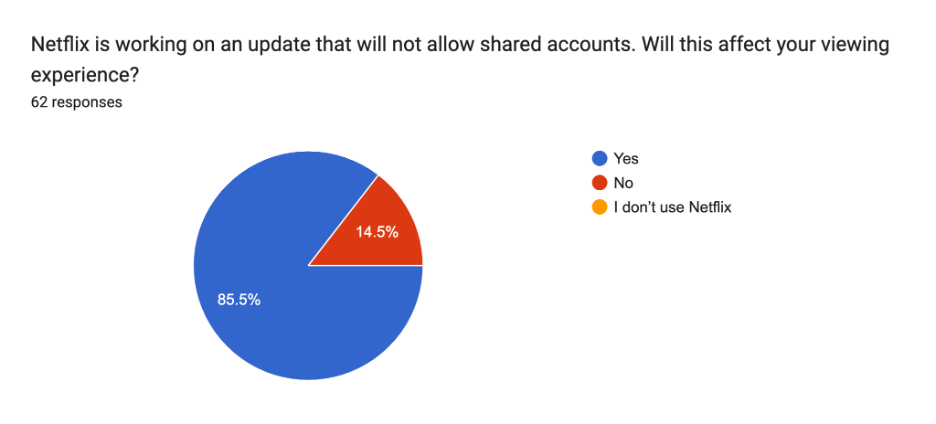
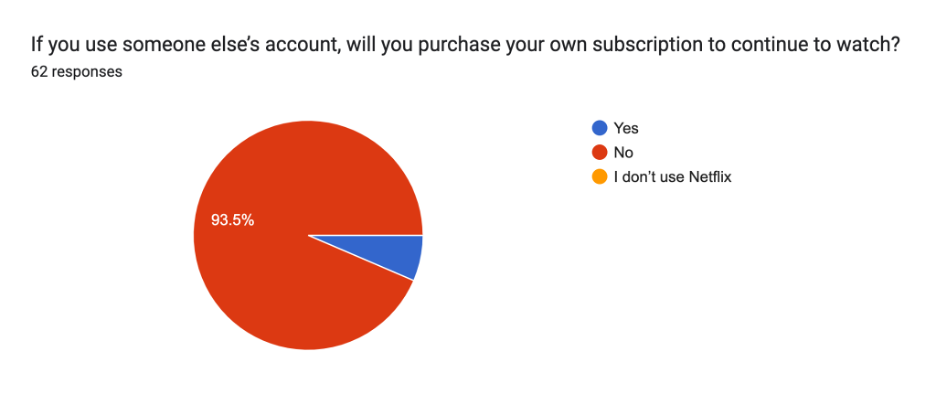
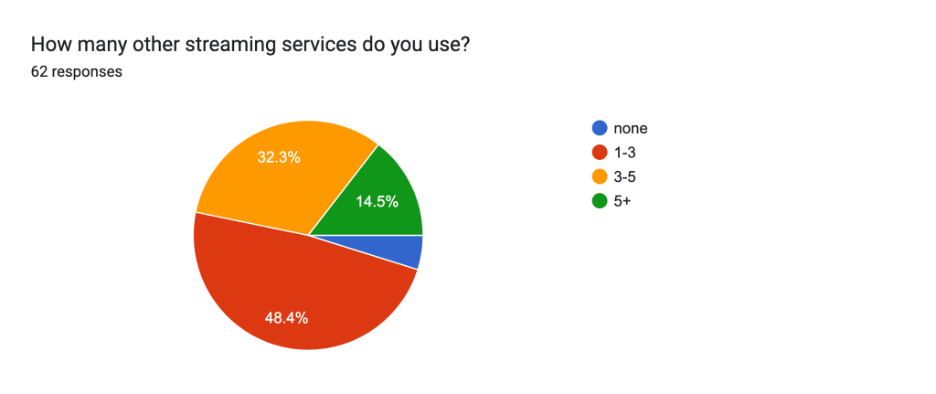
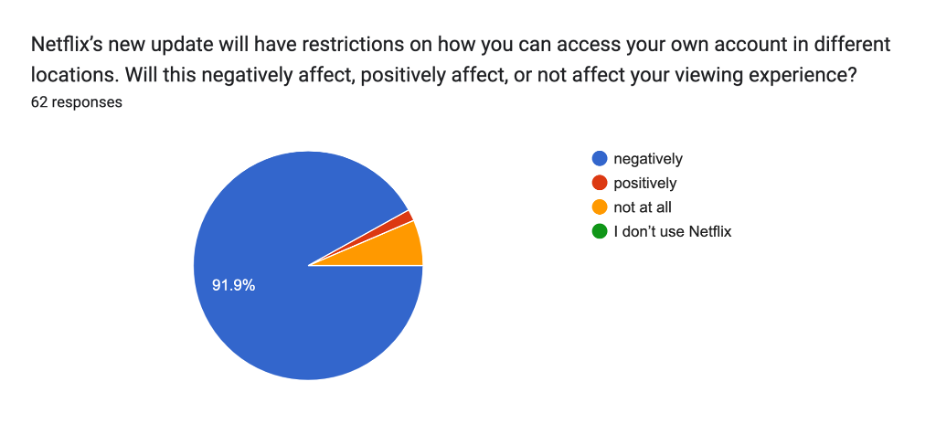
New Rules
The new password sharing rules are a part of a trial in Chile, Peru, Canada and Costa Rica and Netflix has since come out and said the restrictions were never meant to be seen by U.S. users. The restrictions include paying an extra fee for each person with access to the account that does not live in the home and users must log on to watch something at least once every 31 days or will have to re-verify their accounts.
Sharing passwords for streaming accounts to allow others to log on and have their own profile is something that has happened since streaming services like Netflix rose to popularity in the early 2010s. After beginning as a mail service for movies, Netflix started streaming movies and television shows on demand in 2007. It was the 2013 political drama, House of Cards, that started Netflix’s rise to the top of streaming platforms. Since then, it has been the norm to share accounts, especially for college students.
Mississippi State University student Anna Grace Gibson, who uses her father’s account, said she didn’t even know plans varied.
“For as long as I could remember, Netflix had one plan and only cost about 8 or 9 dollars,” Gibson said. “But now all I hear about is how it's closer to $20. That can get expensive when you’re in college and have other things to pay for.”
Gibson said that she still uses her account but is rarely impressed by the content.
“I always start on Netflix,” Gibson said. “But, it seems like most of the time I end up going to a different streaming service to find something to watch. I used to love Netflix, but the quality of their content isn’t as great anymore.”
While some students remain on their parents’ Netflix accounts, some even share accounts with their friends or roommates to combat the monthly subscription fee. According to Netflix’s website, there are over 100 million households that share accounts. Netflix currently has four plans to choose from ranging from $6.99 a month to $19.99 a month.
Most college apartments do not provide cable services for their residents, so oftentimes students rely on streaming services for entertainment. According to the survey, 47.5% of students said they use one to three streaming services, 32.8% use three to five and 14.8% have access to five or more streaming services.
“I use several streaming services,” Gibson said. “I’m a little worried that if Netflix decides to do this, others will too. At that point, I would really have to pick and choose which ones are worth it, and I’m not sure that Netflix would make that cut.”